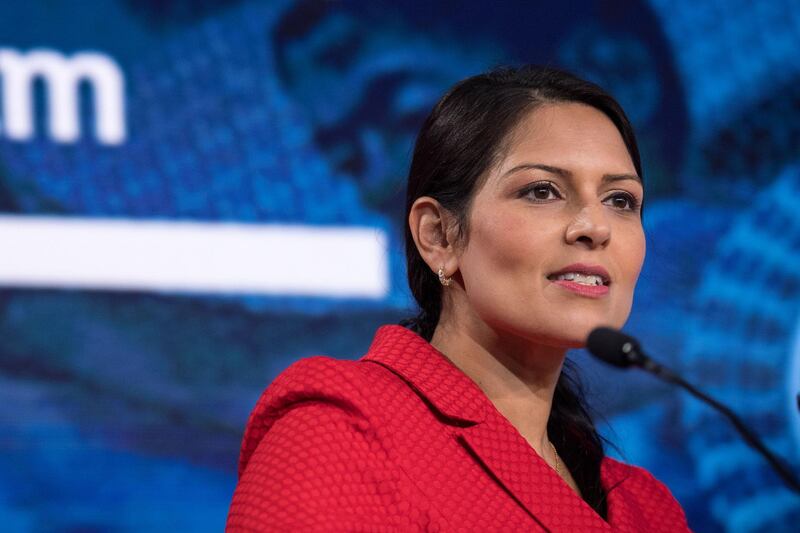A former British cabinet minister and leading Brexiteer has appeared to suggest that the country should use the threat of food shortages in Ireland against the EU to persuade it to drop the backstop proposal.
The Times newspaper published a leaked report on Friday which said that there was the possibility that food exports to Ireland, more than half of which come through the UK, could be disrupted in the event of a ‘no-deal’ scenario.
It also pointed to wider economic effects for the Republic, which would see a drop in GDP of up to 7%, against a figure of 5% for the UK.
_______________
Read more:
Theresa May’s Brexit deal under fire as legal advice stiffens opposition
Sightline with Tim Marshall: What next for Brexit?
UK's Theresa May accused of misleading parliament
Theresa May kicks off crucial Brexit session after three humbling defeats
_______________
Priti Patel, the former international development secretary who resigned in November 2017 after conducting meetings with Israeli groups outside of her brief, told the newspaper that the British government should use the potentially disastrous economic predictions as leverage against the EU.
“This paper appears to show the government were well aware Ireland will face significant issues in a no-deal scenario. Why hasn’t this point been pressed home during negotiations? There is still time to go back to Brussels and get a better deal,” Ms Patel said.
Her remarks have provoked immediate reaction, with the Scottish first minister Nicola Sturgeon calling out the “sheer moral bankruptcy of the Tory Brexiteers” on Twitter:
The sheer moral bankruptcy of the Tory Brexiteers is on full display today. https://t.co/nmTQEAcVJc
— Nicola Sturgeon (@NicolaSturgeon) December 7, 2018
Former Labour MP Tom Blenkinsop brought up the historical parallels of Ms Patel’s threat, saying that “as a descendent of people fleeing county Mayo, it amazes me that these expensively educated Brexiteers have literally learned nowt about the history of these very isles”:
Lisa Nandy, Labour MP for Wigan, told The Times that “threatening Ireland in this way is as morally reprehensible as it is futile.
“Britain should be showing itself to be a dependable neighbour and friend in the future, and it is frightening that Brexiteers are even contemplating a move which could see stopping trade, including food supplies, being weaponised in this way, particularly given the uncomfortable historical echoes.”
The backstop, which is intended to guarantee that there will be no return to a hard border between Northern Ireland and the Republic, has become a bone of especial contention for ‘Hard Brexit’ supporters in the Conservative party and their Democratic Unionist Party allies.







